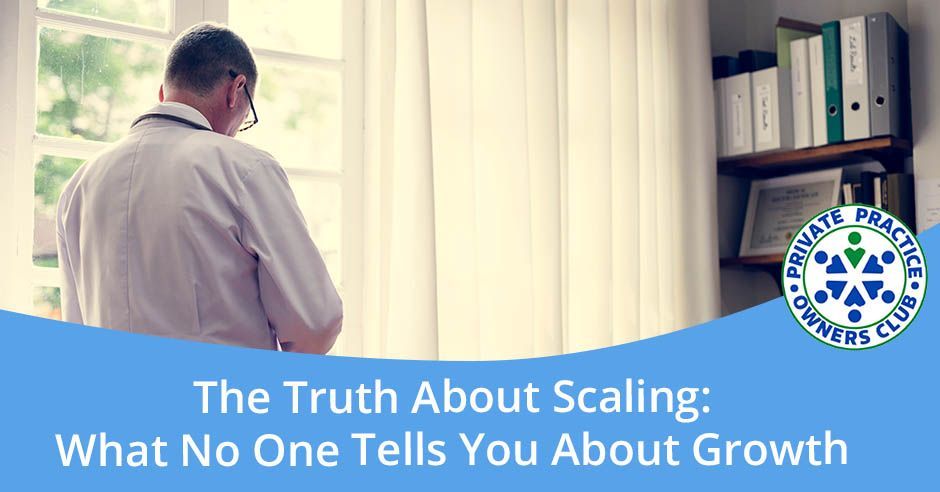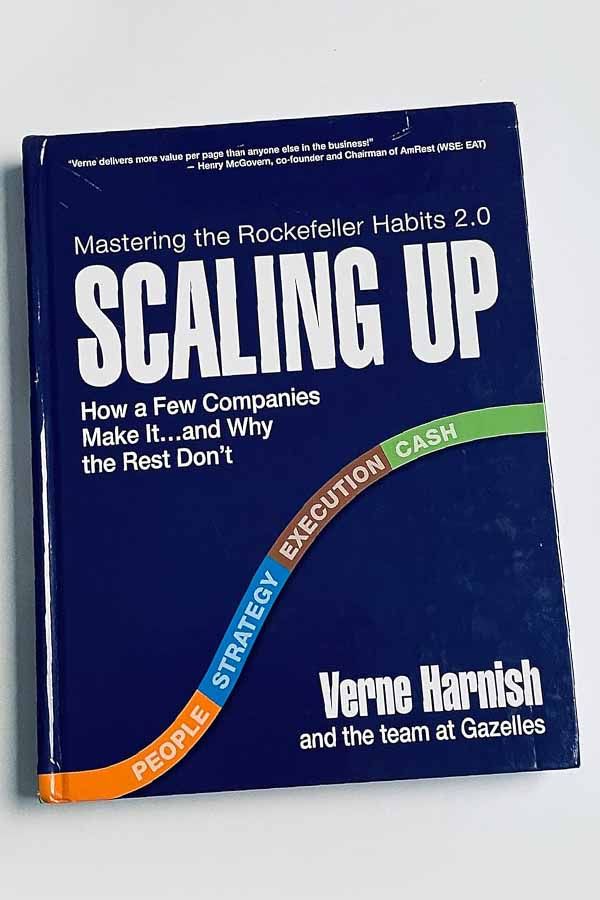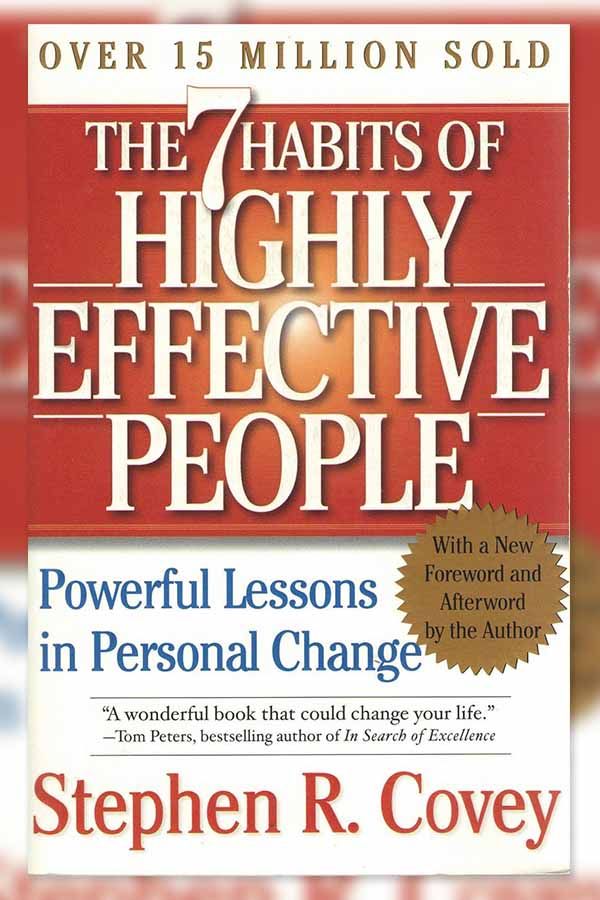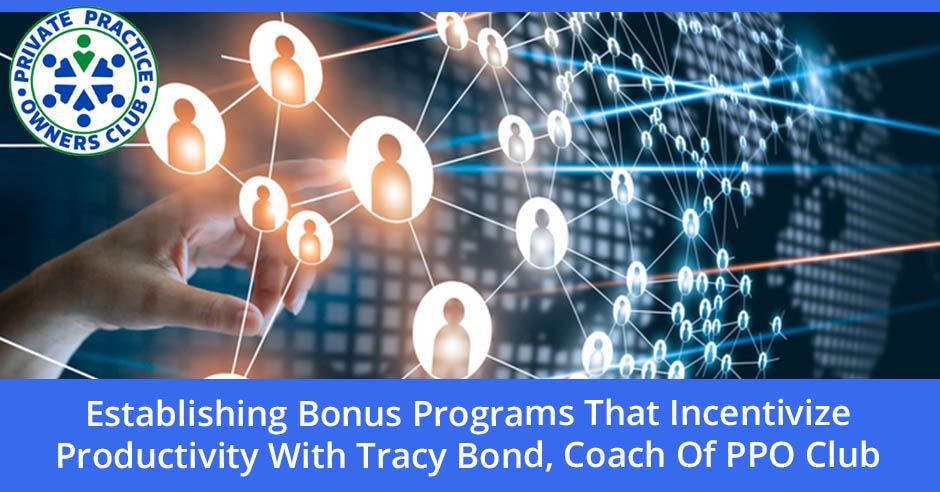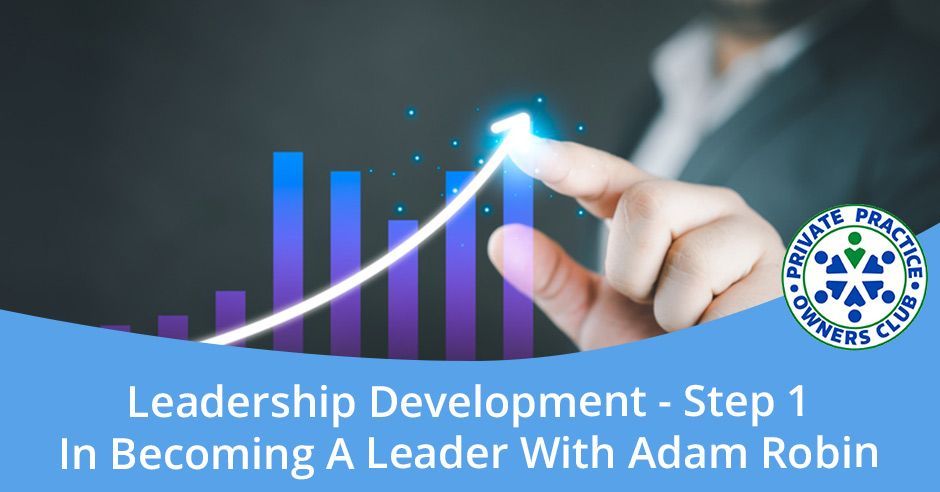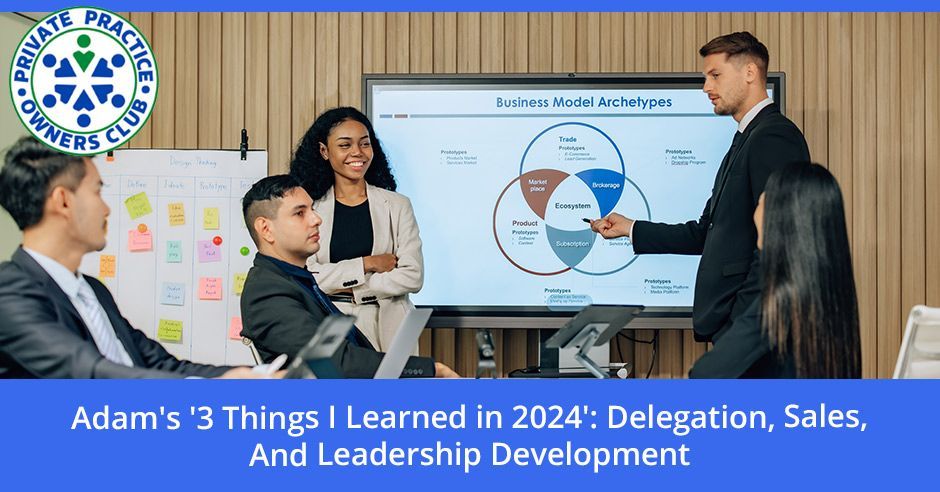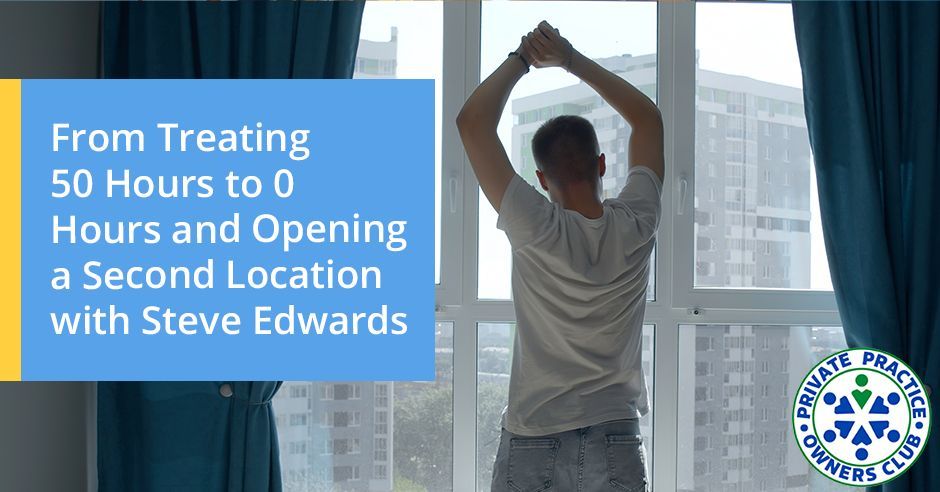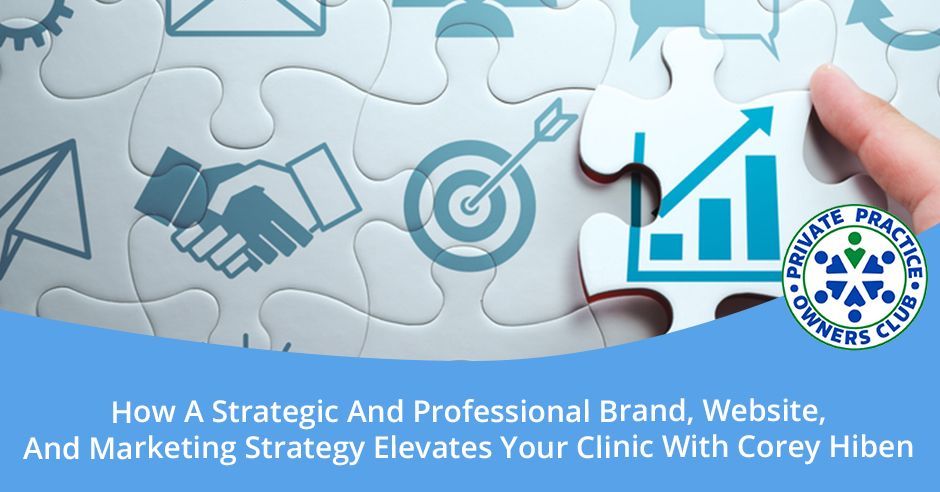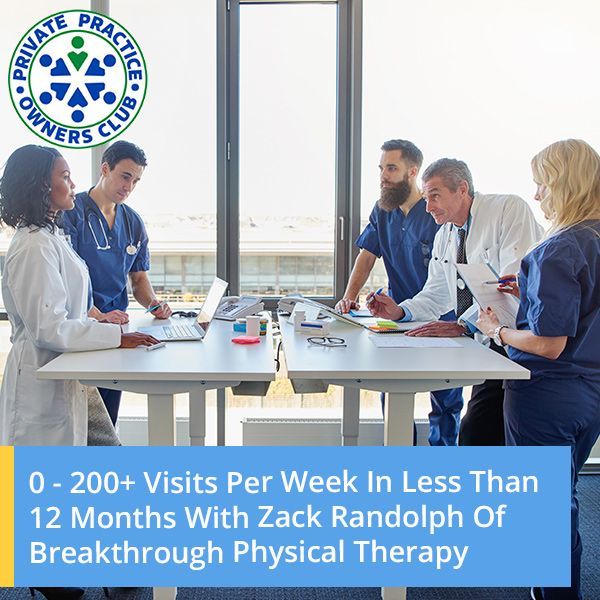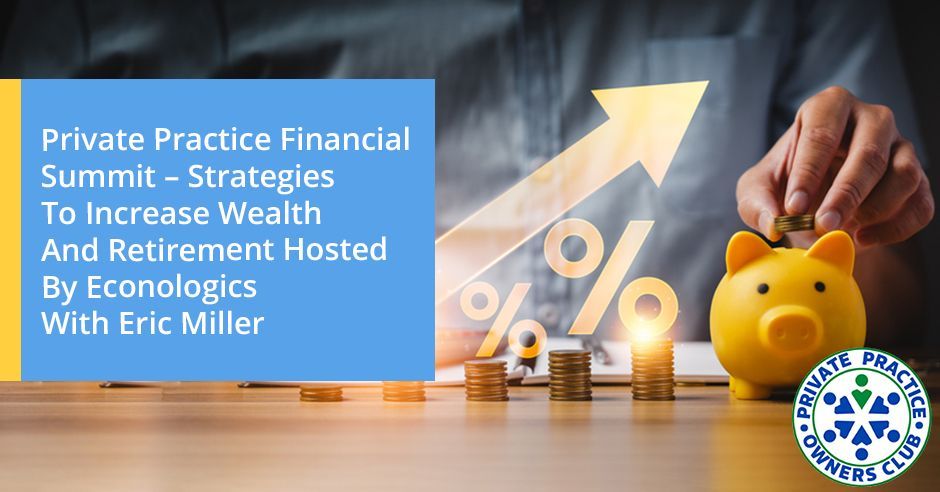Scaling your practice should bring you more freedom—not more stress. Yet, for many practice owners, scaling often feels like running faster on a never-ending treadmill. Why is that?
In this episode, Adam Robin reveals the raw, unfiltered truth about scaling a private practice. He shares why so many practice owners hit a growth ceiling, feel overworked, and lose sight of the freedom they once dreamed of.
Episode Highlights:
·
Why practices hit a ceiling: Discover the common roadblocks that stall growth and how to break through them.
·
The three biggest scaling myths: Learn why more revenue doesn’t have to mean more work, why doing more keeps you stuck, and why you aren’t the only one who can do things right.
·
Adam’s three-step framework for scaling: Master time audits, build scalable systems, and develop leadership that multiplies your impact.
·
How to leverage systems and people: Gain practical insights on building automated systems and empowering your team to run the business without you.
·
The power of financial clarity: Understand how knowing your numbers reduces emotional decision-making and helps you scale smarter, not harder.
Whether you're just starting or looking to expand, this episode offers practical strategies to help you scale effectively without sacrificing your time, health, or sanity.
Tune in to learn how to build a practice that grows while you enjoy more freedom, profitability, and peace of mind.
Visit our Linktree for our 𝗖𝗼𝗮𝗰𝗵𝗶𝗻𝗴 𝗦𝗲𝗿𝘃𝗶𝗰𝗲𝘀, 𝗙𝗿𝗲𝗲 𝗞𝗣𝗜 𝗗𝗮𝘀𝗵𝗯𝗼𝗮𝗿𝗱, 𝗙𝗮𝗰𝗲𝗯𝗼𝗼𝗸 𝗚𝗿𝗼𝘂𝗽, 𝗮𝗻𝗱 𝗔𝗻𝗻𝘂𝗮𝗹 𝗦𝘁𝗿𝗮𝘁𝗲𝗴𝗶𝗰 𝗣𝗹𝗮𝗻𝗻𝗶𝗻𝗴 𝗦𝗲𝗿𝘃𝗶𝗰𝗲𝘀:
https://go.ppoclub.com/linktree-podcasts
Love the show? Subscribe, rate, review, and share!
https://ppoclub.com/
---
Listen to the Podcast here
The Truth About Scaling: What No One Tells You About Growth
Have you ever felt like no matter how hard you push, your business just won't grow beyond a certain point? You're grinding. You're putting in the hours yet somehow, you're still stuck, revenues flat, your team's overwhelmed, and you might feel like you're spinning your wheels to keep things from falling apart.
Here's the worst part. It's not because you're not working hard enough. It's because the way that you've been taught to grow your business is broken. If you keep following that advice you've been given, you'll stay stuck or worse, burn out completely. In this episode, this is what I'd like you to get. Number one, the three biggest growth myths that are silently sabotaging your business. Number two, why so many practice owners hit a scaling ceiling and how to break through it?
Number three, a proven framework that allows you to scale your practice without working more hours, without burning out your team, and without feeling like you're chained to the business. If you've been wondering why you're growth might be stalled and what you need to do to fix it. This is the episode you've been waiting for. Let's dive in.
---
The Challenge Of Scaling Your Practice
We're going to talk about scaling. Verne Harnish wrote a book called Scaling Up. It’s a great book and he covered a lot of cool principles there. What is scaling? It's a good question. To me, scaling means that I am able to grow my business or my life without it occupying more of my time. I can do it in a profitable way. In the beginning, what happens is you input one unit of effort to get one unit of output. One input equal one output. One hour of work will give you $100 of reimbursement from Medicare. There's a one-to-one ratio between input versus output.
The problem is it's not scalable, meaning there's only so much of those types of inputs that you can give in an 8-hour workday or a 10-hour workday. What scaling does is it creates a model or a system that allows you to get more for your inputs over time. Learning how to use leverage, which is either money, people, or systems to such that whenever you put one input in, you get two outputs or three outputs. You can scale your impact, your income, or the value that you bring without robbing you about your time. That's what scaling is for me.
You can do that whether you are going to go from 1 therapist to 5 or 1 therapists to 3 or a team of 2 to a team of 10. That's a scale plan. You could also do it like if you're going to go from one clinic to ten clinics. There are levels to this game as well. We’re going to talk about some of the keys to scaling effectively without getting trapped. Why are you here, is the question. I want you to think about that if you're reading this. Whether you're reading or you're watching the replay, why are you here? Why are you in this group? What has led you here?
I don't know why you're here, but if I had to guess, it's probably because you want to grow your business or your impact. You're interested in creating more value around you so that you can create a business that supports your life so you can get back to the things that you love most, which usually is your family, your health or you want to travel and experience the world in a different way. That's why you're here probably, and you want to make some money on the way, too.
Your business will not scale until you become the person who can help that scale. Nothing will work until you do.
You started your business with a dream of freedom, impact, and financial success, but, as we grow our business, as we grow our life so does the chaos around us. What happens is we start to feel trapped, whether you're starting out with, in the middle, or you’re towards the end. We can become consumed by the complexity of business. What that ends up doing is requiring us to work longer hours, and juggling too many responsibilities. We can start experiencing things like turnover with our team, lack of profitability, and a difficult time finding work-life balance.
We told ourselves in the beginning that like, “If we scale up if we create a bigger business, see more patients or hire more people, that would give us more freedom.” In fact, it's maybe feeling like the opposite, meaning now that I'm scaling up, I have more problems. Why is that happening? Why is that happening? Why is it such that the busier or the bigger things get around you, the more complicated and busier you get? That's what we're going to talk about.
The goal of this presentation is to give you three main things. Number one, why the practices that we see, why we see them hit a ceiling. The main reasons why they hit a ceiling. Number two, is the three myths about growth that might be holding. Number four, I'd like to give you a framework to scale without burning out. If you're going to grow this thing or create a business that's beyond you, at least have a framework. At least have some ideas on how you might be able to do this effectively without sacrificing the things that are most important.
My name is Adam. I'm a physical therapist. I was working 50 plus hours a week years ago. I felt like I was constantly putting out fires. I was struggling with profitability, meaning I was working more but making less. I was missing time with my family and burnt out. What I thought was if I work harder, it will get better. If I work more, it will get better. If I just hustle more, I will eventually find more freedom and I was wrong. That freedom never came.
The problem that I had wasn't my work ethic. I was working really hard, which I'm sure a lot of you are as well. It was my approach or my strategy that was broken. I was going 100-miles an hour. I was going in the wrong direction. As soon as I figure out how to channel my focus towards the things that mattered most, that's when things started to change for me. I was wearing way too many hats. My business completely relied on me. If I took a day off, things would fall apart. I was the answer man to everybody on the team, patients, referral, and sources. Whether it be accountants, my entire team, and the guy that owns the EMR. Everybody.
I had no systems, no clarity, and no proven roadmap to get me where I needed to go. I was not a happy camper. What that meant for me was, I was constantly stressed. I had chronic stress. I was overwhelmed and no real freedom. I was already working hard. Before I started my business, I was an employee and I was working harder as a business owner and making a less money. I had a high paying job, and I got to a place where I was like, “I'm either going to shut the door or get some help.” That was me.
Leadership is not about controlling or managing people. It is about inspiring them to do more because they want to.
That's the framework. That's the change I made, focus on building your systems. If your plate is full with patient care and stuff, stop doing that. Take two hours a week and say, “I'm going to build one system.” Ideally, the system that is going to relieve my bandwidth the most. If you do that six-weeks in a row, you'll have six automated systems that you have effectively delegated off out of your bandwidth. You're starting to build control.
Three Biggest Myths In Scaling
Here are the three biggest myths, and these are like the principles. If you read The 7 Habits of Highly Effective People by Stephen Covey, great book. Check it out. He talks about the principles. Instead of operating from these rigid rules in your business. Let's start identifying what are the principles that we want to frame our decisions behind, the general ideas and values.
Myth number one, is that scaling means more revenue which will mean more work. More revenue should mean less work if you scale effectively. Scaling and growing isn't about doing more stuff. It's not about doing more things. Instead of doing the work, it's about using leverage to get work done. Have you folks ever went to the airport? This is the thing that comes to mind. You’re walking to your terminal and they have those like escalator things but they're flat. I don't know what you call those.
It's like a treadmill but it's going in the same direction as you. That's leverage. That's what scaling is like. You start walking by yourself. It's like one foot and one foot, then when you input a scalable system, you jump on the treadmill and you are moving like ten times faster or three times faster. That's what it's like. We have to grow our business with that type of framework so that the more you grow, the faster, the better things are and the easier things are.
The things that we leverage is our systems and our people and not hustle. Hustle is like the Medicaid of resources. It's the lowest leverage, hardest thing. Systems and people in leadership is like the Blue Cross Blue Shield and the cash pay stuff. We want more of that. That's going to get us way more for our time. if systems is going to come from you, it's going to require you to build those scalable systems. People, that's where we need to have our leadership. You are in the people business. If we don't have good leadership skills, we cannot hire, retain, inspire, and influence our patients or referral. We can't create movement around our organization. We have to scale without hustle.
The myth number two is, if I just do more, it will get better. That's probably the worst mistake ever and yet, we do it over and over. I'm guilty of it, too. I have to catch myself and recognize like, “I've been doing this long enough. Maybe it's time to try something different.” If I just do more, it will get better. In fact, it took a while for me to realize that doing more is what was keeping me stuck. It was exactly the thing keeping me stuck. Again, it's not about adding things to your plate. It's about subtracting things from your plate.
Scale a business with solution, not a problem.
Build that model. Build the model on paper and then let's scale that. Let's scale the objective thing. Otherwise, if it's loosely defined and emotional, you might be scaling a lot of problems. Scale a solution, not a problem. Number two is create a scalable model. Number three is build a team that runs without you. That's the leadership piece. You want to hire people based on roles and here's the key. You must develop a leadership development framework for your organization.
You can outsource that. We have an awesome outsourced solution where we can help you build leaders in your company, but you don't have to do that. You can do it yourself. If you are not deploying leadership within your organization, you will never grow your people, period. People aren’t born with skills. They must be developed. You grow our people, and your people grow your business. Shift from managing people to leading them.
My question for you is, let's just say you decide, “I'm going to block off some time. I'm going to audit my time and attention regularly. I'm going to create a scalable business model and build a team, a leadership development program.” Do you feel like something like that would align with your business goals? Do you feel like that would help you get more of what you want out of your life? I'm pausing to let you think about that. What type of impact would that have on your life? What type of impact would that have on your bank account? What type of impact would that have with the people that you value the most?
CEO Accelerator Framework And Episode Wrap-Up
Here's my pitch. I've taken everything that I've learned. I've worked with probably 15 to 20 different coaches. I hire coach every year. I'm never not working with a coach. I put it into a framework called the CEO Accelerator Framework, where we help you build scalable systems, your leadership, and find financial clarity. My guarantee is that we have to do an interview process, but if we decide that it's a good fit for each other, if you want 100% to the program after 90 days, if you're not completely satisfied, you don't pay. We have 100% success rate.
If you want to learn from more information about that, shoot me a DM. That's my training for now. Here's what I'll leave you with. You guys are amazing, inspiring, and awesome. You guys are worthy of success. You deserve making a bunch of money. You can do anything you want, especially with a little bit of guidance and support and a little bit of clarity. There's nothing that you can accomplish. I would love to see you win and create a business of your dreams.
Important Links



